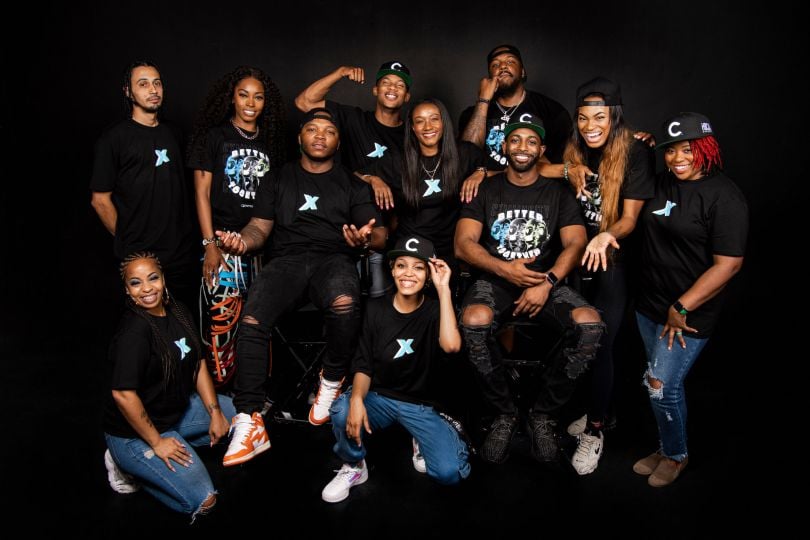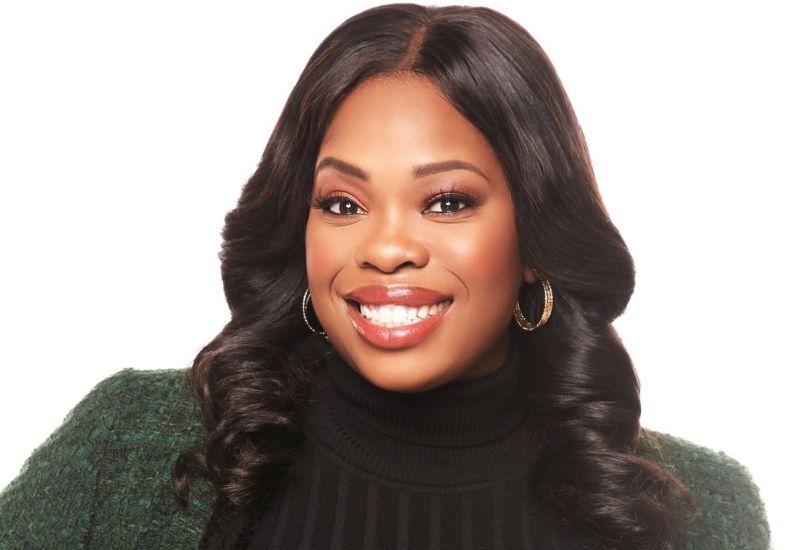Sure, the latest initiatives from the Teslas, Apples and Googles of the industry tend to dominate the tech news space — and with good reason. Still, the big guns aren’t the only ones bringing innovation to the sector.
In an effort to highlight up-and-coming startups, Built In launched The Future 5 across 11 major U.S. tech hubs. Each quarter, we will feature five tech startups, nonprofits or entrepreneurs in each of these hubs who just might be working on the next big thing. Read our round-up of rising startups from last year here.
* * *
Although Atlanta is home to several large corporations that have been around for decades — namely Delta Airlines, Coca Cola and the like — the city’s tech startup community is famous for being diverse and collaborative.
With such a supportive business environment, the Peach State Capital is primed with potential and local startups are thriving and breathing life into countless innovations. Find out which budding businesses are breaking ground on what could be the next big thing in tech.
BUILT IN’S FUTURE 5 UP-AND-COMING Atlanta STARTUPS, Q1 2022
- cxmmunity (Esports/Professional Development)
- The Labz (Web Design)
- Goodr (Charity/Sustainability)
- Bacchus (Wearable Tech)
- 7th Ave (Social Media)

cxmmunity (Esports/Professional Development)
Two-thirds of the U.S. population enjoys playing video games as a pastime. With such a large consumer base, the industry has grown to encompass a variety of sectors, including esports where talented gamers can compete in professional or amateur leagues. Such a popular industry depends on talented tech professionals to develop the games people love so much. However, of the people who comprise that talent, only a small fraction of individuals belong to underrepresented groups.
“We realized very early on that about 83 percent of African American millennials play video games on a weekly or daily basis, but then when you look at the video game workforce as a whole, there’s only about 2 percent of African Americans that work within the space,” Chris Peay, CMO and co-founder of cxmmunity, told Built In.
Co-founded by Peay and CEO Ryan Johnson, cxmmunity is on a mission to combat this statistic. Dedicated to increasing diversity within the esports and gaming industry, the organization uses gaming, esports, education and entertainment to foster underrepresented students’ professional growth and equip them to take on careers in the tech industry.
“We started cxmmunity to break down systemic barriers within the tech industry.”
As alums of historically black colleges and universities (HBCUs), the founders of cxmmunity worked to create the opportunities they wish they had while in college. Now, though cxmmunity’s very own HBCU Esports League, the company uses gaming as a way to immerse students in the world of tech. Incorporating students from schools across the country, cxmmunity’s education program exposes participants to roles within the video gaming industry as well as teaches them skills needed to compete for roles in production, content creation, marketing and game development.
“We have subject matter experts from the industry — from Epic Games [and] from Riot Games — who come in and actually teach alongside our facilitators and provide our students with real-world, industry-leader information,” Julian Fitzgerald, cxmmunity’s COO, told Built In.
The startup also partners with corporations like Microsoft and Twitch to provide students with access to internships and other opportunities, and to create esports campaigns that drive measurable social impact. It also works with artists, athletes and influencers to help achieve these goals.
“We started cxmmunity to break down systemic barriers within the tech industry,” Peay said. “We will continue working to expose the youth to the opportunities within these industries and get underserved students from marginalized communities hired within the industry that they so highly regard.”
The Labz (Web Design)
As the self-proclaimed Olivia Pope of technology problem-solving, Farah Allen knew early on that she wanted to build solutions that worked for people. After years spent producing platforms for companies in the tech consulting world, she endeavored to develop a product on her own. What resulted was a way to let musicians, filmmakers and other creatives design an online presence that was just as unique as them.
Allen founded The Labz in 2018 as a platform that goes beyond traditional website design. Advertisers, educators, performers and many more have come to know The Labz as a place to host interactive virtual events in a diverse range of digital worlds. The Labz gives users room to roam, letting them customize the environment that best suits their needs.
The platform also gives users a space for their content to live. Users can drag and drop photos, videos or other elements onto website pages or into preset interactive 3D presentations. Creators can leverage features such as video or text chat rooms, live streams or videos programmed to play at a specific time. For instance, a singer’s concert could go live at a predetermined time in a virtual concert hall, or an artist can create a navigable 360-degree exhibition featuring their NFTs hung on virtual walls.
The Labz is one of many platforms to have pivoted during the pandemic with plans to address a wider range of businesses and business needs. Today, most high-growth companies have adopted a hybrid work model, and 83 percent of employees prefer this more flexible option. As this trend continues and companies search for ways to set themselves apart and keep their employees engaged, The Labz is positioning itself to grow amid heightened demand for virtual event solutions.
“This is a movement to give companies more control over how they deliver their content, how they activate new customers or how they keep old customers [and] how they activate their employees,” Allen told Built In. “This is definitely a strategy that is working for customers we have so far, and as people hear about this, it can work for them as well.”

Goodr (Charity/Sustainability)
For millions of people across the country, the word “Thanksgiving” calls to mind a luscious and bountiful spread of their favorite dishes. However, with all the preparation that goes into creating such a feast, as well as the leftovers people may not finish, what’s seldom considered is how much food goes to waste during the holidays.
Anywhere from 30 to 40 percent of food goes unconsumed in the U.S. every year, as found by the USDA. Despite this fact, millions of people across the country are faced with hunger and food insecurity. Angered by these statistics, Jasmine Crowe took matters into her own hands and began providing home-cooked meals to those in need in her community. Her charitable mission evolved in time with emerging technology in the food delivery space, and in 2017 she founded Goodr — a platform dedicated to eliminating food waste.
“The work that we do helps them be better companies. Beyond that, we’re helping them save money, and I think it’s essential to be a good person in your community.”
Goodr leverages logistics to redirect edible food surplus from businesses to families, children and seniors across the country. Its enterprise tech solution allows organizations to specify the items and quantities they want to donate, then those items are picked up and delivered throughout Goodr’s network of nonprofits. The businesses that donate are then able to view real-time impact analytics, such as how many people they fed and how much food they kept out of landfills.
“Now you see all these companies that are really focused on their ESG score and they’re focused on … how they are presenting themselves to the greater environment,” Crowe told Built In. “So I think that’s really important and the work that we do helps them be better companies. Beyond that, we’re helping them save money, and I think it’s essential to be a good person in your community.”
In addition to distributing food through its nonprofit network, Goodr enables individuals to access items at no cost directly through pop-up grocery markets. Through sponsorships, it works to establish free food pantries in neighborhoods that need them. Recently, it partnered with rapper Gunna to open a standalone brick-and-mortar location called Gunna’s Goodr Grocery Store and Drip Closet in Atlanta.
“Right now we’re in 17 markets, [and] I definitely think we should be in every major market in this country,” Crowe said. “Hopefully within three years, I’d like to see us have some international expansion, even if that’s just throughout North America.”

Bacchus (Wearable Tech)
Knowing everyone made it home safely after a few rounds of drinks can come as a great relief, but the best feeling of all is when one’s safety isn’t even a concern to begin with. This is one of the concepts behind Bacchus, a wearable device that can let someone know right away whether they’re sober enough to get behind the wheel.
Different from a breathalyzer, Bacchus leverages biometric data to measure the wearer’s blood-alcohol concentration (BAC). The bracelet is equipped with transdermal sensors that can detect chemicals in gasses or sweat emitted from the skin. By monitoring these factors, Bacchus can communicate with the associated mobile app to display someone’s BAC as they’re drinking in real-time.
“We don’t promote drinking and driving, but that’s what people do,” Joe Hamilton, founder and CEO of Bacchus, told Built In. “The biggest thing that we really sell is the security blanket of knowing, because oftentimes the reason people get too drunk is because they don’t know and they think they feel fine and they’re not.”
The idea for a solution like Bacchus sprang from Hamilton’s personal experience getting a DUI. He contemplated how he could have prevented the situation from happening in the first place which lead him to found Bacchus. Because his solution is able to give instant feedback to the user, Hamilton sees Bacchus’ potential as the best option to ensure people drive only when they’re coherent enough to do so.
“As you’re drinking, you can know to slow down because [the app is] telling you to slow down,” Hamilton continued. “It’ll tell you to drink water; it’ll tell you to eat food. These things are proven to slow down our rate of intoxication.”
Beyond this, Bacchus will also send a user multiple reminders not to drink and drive, as well as show them a time frame for when they should be sober again. The company also partners with Uber to enable people to call for a ride.
Though the tech that powers Bacchus is still relatively new, the company has established a working prototype and is researching ways to further its solution. Having spoken with names like Bacardi and the National Highway Safety Administration, Hamilton hopes to establish more partnerships that will further Bacchus’ capabilities and keep more people safe.

7th Ave (Social Media)
Feeling a sense of belonging might be one of life’s most underrated sensations, but it is undeniably one of the most valuable. The pandemic closed off many of the physical spaces where people could be themselves and bond with like-minded others, but one startup looking to reignite a sense of connection is 7th Ave, a social media platform built by and for members of the Black community.
“When you look at our physical existence, our community has always had to build out spaces where we can really just exist and let our hair down. That might be places like a Caribbean restaurant, your auntie’s kitchen [or] that barbershop down the street,” Diaundra Jones, co-founder of 7th Ave, told Built In. “And when we look at those safe spaces that translate online, they just simply don’t exist. There’s no space that’s really focused on building for us and being … really just a place where you can fully exist in your truest and most authentic form.”
The need for a solution like 7th Ave was particularly strong in October 2020 when the company’s founding team came together. Their solution was conceived during a period of racial unrest following the death of George Floyd, coupled with social challenges resulting from being stuck inside and apart from one another due to the pandemic. As the founders did research on what exactly their audience was looking for at the time, they found a high demand for a way to spread information among each other and minimize the knowledge gap.
With that in mind, they built 7th Ave — a place where users can be authentically themselves, feel heard and seen and then be mobilized by information. Its goal is to become the digital home for the Black community.
“We see 7th Ave as a family member that we’d like to put in everyone’s pocket.”
Its mobile platform serves as a place for users to aggregate information from any online medium by posting it onto a vertical feed. From there, people can start conversations directly from a post. The app features audio capabilities that allow users to enter a chatroom where they can verbally ask questions and receive answers and advice. 7th Ave also enables users to curate the information visible on their personal profiles and organize content for specific topics of interest.
“As a community, we live this life where we exist across many different planes in this country, and sometimes we’re fortunate enough to be so authentically ourselves and then other times we feel like we may have to mold or shift to be able to be cohesive in a space,” Jones said. “What we were really focused on is how we change and shift that to a world where the dream is [to] just exist and be us at all times and let that be embraced.”
The company recently raised a $2.5 million seed round and is currently developing its solution to further empower the community it serves.
“We see 7th Ave as a family member that we’d like to put in everyone’s pocket,” Jones said.




